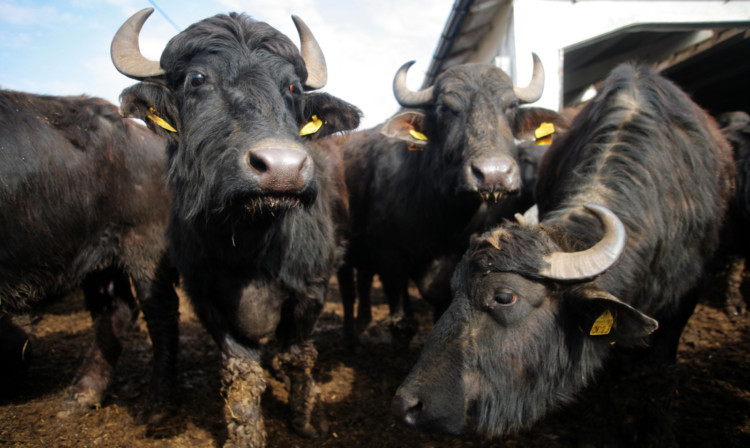
A nature lover who landed ‘the world’s best job’ managing a secluded Scots island quit his post to herd buffalo on a remote Romanian farm instead.
Edward Glenwright left the island of Inchcolm after just a year as one of only two inhabitants on the breathtaking stretch of land.
In 2012, Edward was chosen from a pool of 650 applicants all desperate to land the £20,000-a-year post as custodian of idyllic Inchcolm, where duties included bird-watching, liaising with visitors and monitoring wildlife.
But in the wake of a dispute he raised against a local tour operator, Edward left the dream post in October.
And in exchange for Inchcolm, the 37-year-old flew 3,500 miles to a dilapidated backwoods farm in Transylvania to lend a hand milking buffalo.
Ed said: “Living on Inchcolm was the best job in the world truly fantastic.
“But being responsible for 170 water buffalo in freezing Romania, I’d recommend to anyone.”
Yorkshire-born Ed was the toast of the working man when Historic Scotland handpicked him to be the caretaker on Inchcolm.
The outdoorsman’s job required him to live on the nine-hectare isle eight months a year, where his duties asked little but to offer guests a warm welcome and run the island’s gift shop.
“It was, as everyone had labelled it, the dream job,” he said.
“To come out of the house every day and see all the wildlife was just amazing. Myself and Lucy who was the island’s only other inhabitant lived in a two-bedroom stone-built cottage.
“The cooker ran off bottled gas and our limited electricity supply came from generators. It was an amazing little cottage to live in.
“Every morning I would look out from the garden on to the Forth Estuary and watch the ships sail past. I’d then study the wildlife, from seabirds to wild foul. In September, I witnessed a seal pup being born. It was incredible.
“But away from that, I did have duties I managed the island’s shop, looked after wildlife and spoke to guests.”
After the tourist boats left for the day, Ed would spend hours in the summer evening sun reading novels and listening to Johnny Cash.
“Had I gone back this year I would have bought a boat to make it easier to nip off to the pub,” he added.
However, Edward has opted not to return to Inchcolm. A fall-out in the wake of concerns he flagged up regarding a tour group led to him quitting the post.
He’s since spent four of the last five months slugging away in sub-Arctic conditions rearing buffalo, protecting his herd from wild wolves in rural Romania.
Ed explained: “My friend bought 200 hectares of land and a derelict ex-communist farm in Transylvania last year.
“It was completely destroyed when he took it over, but he’s since rebuilt it. He asked me over to help out over the winter.
“Every day I’d milk 40 of 170 buffalo, which would generate around 200 litres of milk for buffalo mozzarella.
“The Romanians still use a lot of rural skills which have long disappeared in Britain. It was like going back in time. They still use horses and carts and only recently bought a tractor.”
Living in a farmhouse in outback Romania, Ed’s dedication to the outdoors was pushed to the limit as winter temperatures plummeted to -20C.
With Eastern European winters lasting six months at a time, the farm was routinely under a blanket of snow.
And when Ed finally found some warmth cosied up in bed, the late-night howling of wolves would send a shiver tingling back down his spine.
“The whole experience was so different to the UK”, he said.
“My job was really just to make sure the buffalo survived those conditions. It was testing to have that responsibility of 170 lives, but I enjoyed it.
“It is at polar opposites almost to the job I had on Inchcolm, but one I’d recommend to anyone. They were both similar in terms of isolation.
“I’m deeply upset at having to have left the job on Inchcolm, but I felt it was my only option. Hopefully I can get another similar type of job soon.”
On the Inchcolm post, a spokesman for Historic Scotland said: “We are currently looking into recruiting and will take the time it requires to get the right person.”

Enjoy the convenience of having The Sunday Post delivered as a digital ePaper straight to your smartphone, tablet or computer.
Subscribe for only £5.49 a month and enjoy all the benefits of the printed paper as a digital replica.
Subscribe